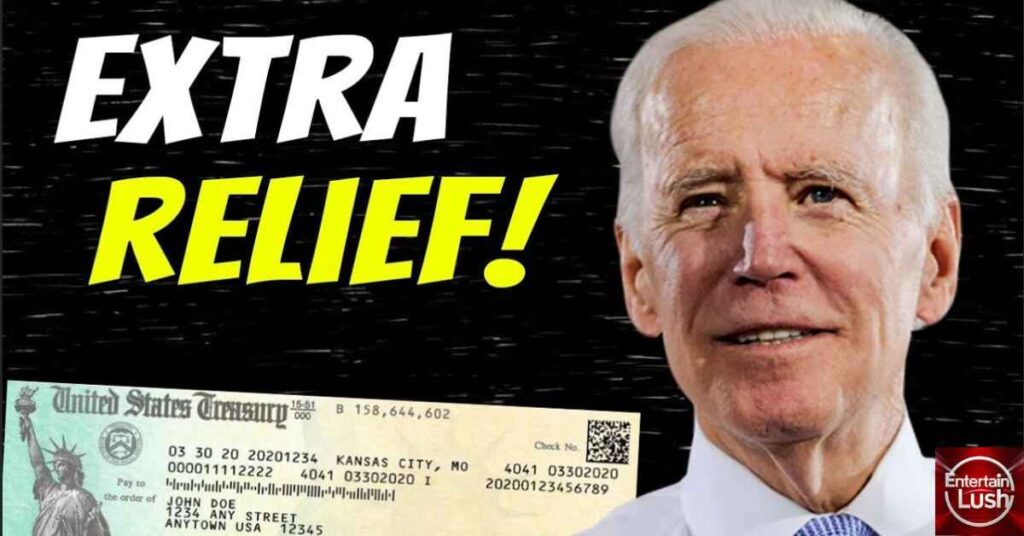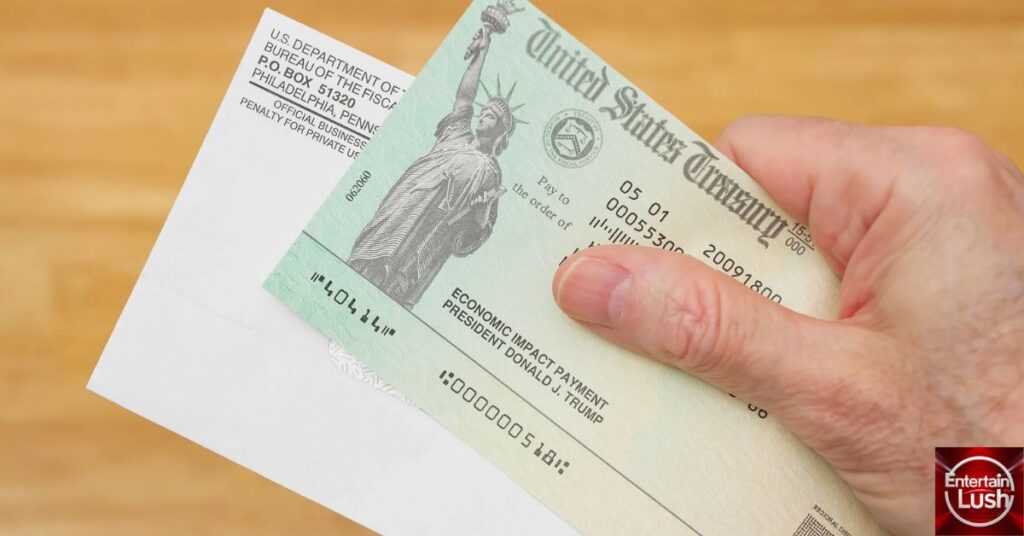The rising cost of living hits seniors hard. Many struggle to make ends meet on fixed incomes, facing tough choices between essentials like food, medicine, and housing. The proposed $2600 stimulus check for seniors in 2024 aims to ease this burden.
But confusion surrounds this potential financial lifeline. Who qualifies? When will it arrive? How will it impact other benefits? These questions leave many seniors uncertain and anxious about their financial future. This comprehensive guide cuts through the noise, providing clear, factual information about the $2600 stimulus check for seniors in 2024.
We’ll cover eligibility, distribution, and everything else you need to know to navigate this potential financial boost.
The Origins of the $2600 Stimulus Check Proposal
The $2600 stimulus check for seniors in 2024 grew from concerns about rising living costs. Policymakers saw many older Americans struggling with fixed incomes. They proposed this targeted support to help seniors cope with inflation. The idea gained traction as a way to provide direct aid to a vulnerable group.
Key Features of the $2600 Stimulus Check for Seniors
This stimulus check is designed specifically for seniors. It’s a one-time payment of $2600. The money is tax-free and doesn’t affect other benefits. It aims to provide quick financial relief. Seniors can use the funds for any purpose, giving them flexibility to address their most pressing needs.
Differentiating the 2024 Stimulus from Previous Payments
The 2024 senior stimulus differs from earlier pandemic-era payments. It targets only seniors, unlike the broader 2020-2021 checks. The amount is larger at $2600. It also has different eligibility rules. This stimulus focuses on ongoing economic challenges rather than the acute crisis of COVID-19.
Eligibility Criteria for the $2600 Stimulus Check
| Criteria | Requirement |
| Age | 65 or older |
| Income | Under $75,000/year |
| Residency | U.S. resident |
| Filing Status | Single or joint |
Age Requirements for the Stimulus Check
The age threshold for this stimulus is 65 years old. This aligns with the standard retirement age in the U.S. Anyone 65 or older by December 31, 2024, qualifies if they meet other criteria. The age requirement ensures the support reaches retired individuals.
Income Thresholds and the $2600 Stimulus
- Single seniors: income up to $75,000/year
- Married couples: combined income up to $150,000/year
- Partial payment for incomes slightly above these limits
- Based on 2023 tax return or most recent SSA information
These income limits target the stimulus to lower and middle-income seniors.
Residency and Citizenship Requirements
To get the $2600 stimulus, seniors must be U.S. citizens or legal permanent residents. They need a valid Social Security number. The person must have lived in the U.S. for at least half of 2023. These rules ensure the aid goes to seniors living and paying taxes in America.
Application Process for the $2600 Stimulus Check
- Check eligibility on the official government website
- Gather necessary personal and financial information
- Fill out the online application form
- Submit supporting documents if required
- Wait for confirmation email
- Track application status using provided reference number
Automatic Enrollment vs. Manual Application
Most seniors will be enrolled automatically for the $2600 stimulus check. The government uses tax records and Social Security data to identify eligible individuals. Those who filed recent tax returns or receive Social Security benefits don’t need to do anything. However, some seniors might need to apply manually. This includes those who haven’t filed taxes recently or don’t receive federal benefits.
Required Documentation for the Stimulus Check
Seniors who need to apply might need to provide:
- Valid government-issued ID
- Social Security number
- Proof of age (birth certificate or passport)
- Recent tax return or income statement
- Proof of address
Timeline for Application and Processing
The application period for the $2600 senior stimulus check was opened on March 1, 2024. The government aims to distribute all payments by September 2024. Seniors should check the official website for updates on processing times.
Payment Methods: Direct Deposit vs. Physical Checks
Direct deposit is the main way seniors will get their $2600 stimulus. It’s fast and secure. The money goes straight into your bank account. If you get Social Security by direct deposit, you’ll get the stimulus the same way. For those without bank info on file, the government will mail a paper check. This takes longer but ensures everyone gets their payment.
Tracking Your $2600 Stimulus Check
Seniors can track their stimulus payment online. The IRS will set up a “Get My Payment” tool on their website. You’ll need to enter your Social Security number and birth date. The tool will show if your payment has been sent and how. If you’re getting a paper check, it will give you an estimated arrival date. For help, call the IRS stimulus hotline.
Impact of the $2600 Stimulus Check on Seniors

This $2600 stimulus will give many seniors a financial boost. It can help cover rising costs of food, medicine, and utilities. Some might use it to pay off debt or make needed home repairs. For many, it provides a safety net or allows for small luxuries. While it’s a one-time payment, it can ease financial stress and improve quality of life for seniors on fixed incomes.
Potential Economic Effects of the Stimulus
The $2600 stimulus for seniors could boost local economies. Many seniors will spend this money on everyday needs. This spending helps local businesses. It might create more jobs in areas with lots of seniors. The stimulus could also help seniors pay off debts. This might improve their overall financial health. While it’s a one-time payment, it could have lasting positive effects on senior spending power.
Potential Challenges and Concerns
Some seniors worry about getting the stimulus check. Common concerns include eligibility confusion and payment delays. Others fear it might affect their other benefits. Some seniors don’t have bank accounts for direct deposit. This could slow down their payment. There’s also worry about scams targeting seniors. These are valid concerns, but there are solutions for each issue.
Read This Blog: How To Identify High Net-worth Individuals
Fraud and Scam Prevention for Seniors
- Never give personal information to unsolicited callers or emails
- The IRS won’t call, text, or email about your stimulus check
- Don’t pay anyone to “help” you get your stimulus
- Ignore offers to get your check faster
- Check official .gov websites for real information
- Talk to trusted family or friends if you’re unsure about something
- Report suspected scams to the FTC
Delays in Stimulus Check Processing
Stimulus check delays can happen for several reasons. Incorrect bank info is a common cause. Some checks might get lost in the mail. Complex tax situations can also slow things down. If your check is late, don’t panic. Check the IRS website for updates. You can call their helpline if your payment is very late. They can track your payment and help solve any issues.
Government Resources and Support

The government offers several resources to help seniors with the $2600 stimulus. There’s an official website with all the details. You can find answers to common questions there. They also have a special helpline for seniors. Local Social Security offices can help too. Many communities have senior centers with staff trained to assist. Don’t hesitate to use these resources. They’re there to make sure you get the help you need.
Official Websites and Helplines for Stimulus Information
The main source for stimulus info is IRS.gov. They have a special section just for the senior stimulus. It’s updated regularly with the latest news. For phone help, call 1-800-919-9835. This number is for stimulus questions only. The Social Security Administration also has info at SSA.gov. Their number is 1-800-772-1213. These official sources are the best way to get accurate information. Be wary of other websites claiming to have inside info.
Local Assistance Programs for Seniors
Many towns and cities have programs to help seniors beyond the $2600 stimulus. Check with your local senior center. They often know about food banks, utility assistance, and free transportation. Some areas offer property tax relief for older homeowners. Libraries might have computer classes to help you track your stimulus online. Don’t overlook your local Area Agency on Aging. They can connect you with many helpful services right in your community.
Advocacy Groups Supporting Seniors
Several organizations fight for seniors’ financial well-being. AARP is a well-known advocate for older Americans. They provide updates on the stimulus and other senior issues. The National Council on Aging offers financial advice for seniors. The Gray Panthers work to combat age discrimination and poverty. Justice in Aging focuses on senior legal rights. These groups can help you understand your benefits and rights. They also push for policies to improve seniors’ lives.
FAQ
Is the $2600 stimulus check for seniors in 2024 taxable?
No, the $2600 stimulus check for seniors in 2024 is not taxable. You don’t need to report it as income on your tax return.
Can seniors receive multiple stimulus checks in 2024?
No, seniors will not receive multiple stimulus checks in 2024. The $2600 payment is a one-time stimulus check for eligible seniors.
What if a senior doesn’t receive their $2600 stimulus check?
If you don’t receive your check, contact the IRS. They can track your payment and help resolve any issues with delivery or eligibility.
Conclusion
The $2600 stimulus check for seniors in 2024 aims to provide much-needed financial support. While it won’t solve all problems, it can offer some relief. Remember to check your eligibility and keep an eye out for your payment. Use official sources for information and be wary of scams. If you need help, don’t hesitate to use available resources. This stimulus is just one part of supporting our seniors. Local programs and advocacy groups continue to work for your well-being. Stay informed, stay safe, and make the most of this financial boost.
Mr. Dravid is the dedicated author of the business category on Entertainlush.com. With a keen eye for industry trends and a passion for insightful analysis, he delivers valuable content that empowers readers to stay ahead in the ever-evolving business landscape. His expertise ensures that every article is both informative and engaging, helping audiences navigate the complexities of the business world.







